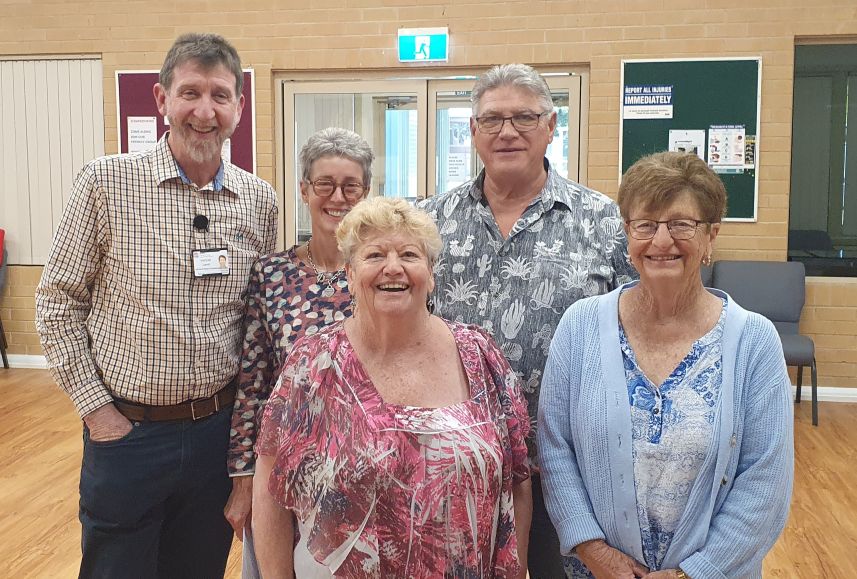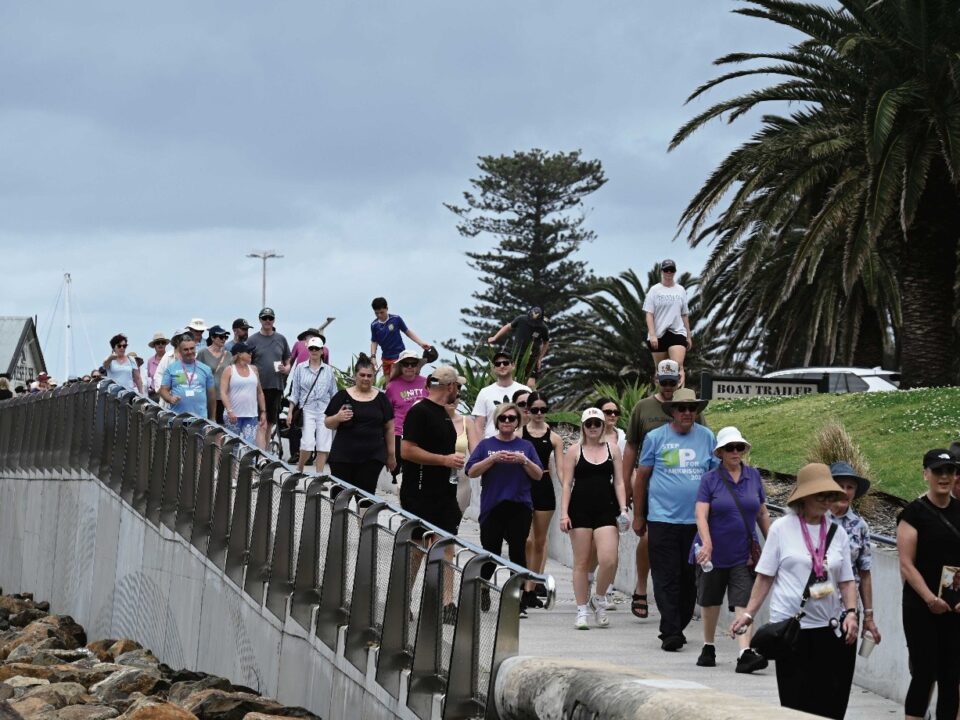Parkinson’s Nurse appointed in Port Macquarie
Support Group Conference 2018
26th May 2020Exercise cuts Parkinson’s risk for men
26th May 2020Parkinson’s Nurse appointed in Port Macquarie
Parkinson’s Nurse appointed in Port Macquarie

Port Macquarie Parkinson’s NSW nurse Rachael Mackinnon
People with Parkinson’s disease in the Port Macquarie area are set to benefit from the appointment of a specialist neurological nurse trained in the care and treatment of people with the neurodegenerative condition.
The appointment of a Parkinson’s nurse to support the Port Macquarie community was today announced by Mrs. Leslie Williams Member for Port Macquarie and Mr. David Veness, President of the Parkinson’s NSW Board.
The position is being funded by the Mid North Coast Health District in partnership with Parkinson’s NSW at a cost of $450,000 over three years.
David Veness of Parkinson’s NSW said the appointment of a neurological nurse will make a huge difference for the local Parkinson’s community, with studies showing that health outcomes are poorer for people living with Parkinson’s in regional areas compared to those in the city.
“The prevalence of Parkinson’s has been reported as higher in rural and remote areas, yet most of the specialist services for Parkinson’s are found in capital cities. Therefore access to quality health care is an issue,” he said.
Member for Port Macquarie, Mrs. Leslie Williams said, “Specialised neurological nurses are proven to have many benefits for people living with Parkinson’s and their families.
“They provide evidence-based advice and advanced nursing services, and connect people with the support they require in their own community. There is also evidence that this model of care helps to reduce the sense of isolation many people with Parkinson’s experience, along with the high rates of depression and anxiety associated with the disease,” Mrs. Williams said.
“Carers and family members also notice significant improvements in their own well-being, with reduced levels of depression.”
“Hospital stays can also be reduced through the intervention of a specialist nurse”, Mrs. Williams said.
Parkinson’s NSW currently employs neurological nurses in three regional areas – Coffs Harbour, the Shoalhaven and Orange – supporting more than 1,240 patients.
The nurses play a key role in meeting the needs of people living with Parkinson’s by liaising between patients and specialists, educating aged care facilities, health care professionals, and pharmacists and administering advanced nursing practices.
They also provide support during hospital stays and help with referrals to complementary therapies such as physiotherapy, occupational therapy and speech pathology.



